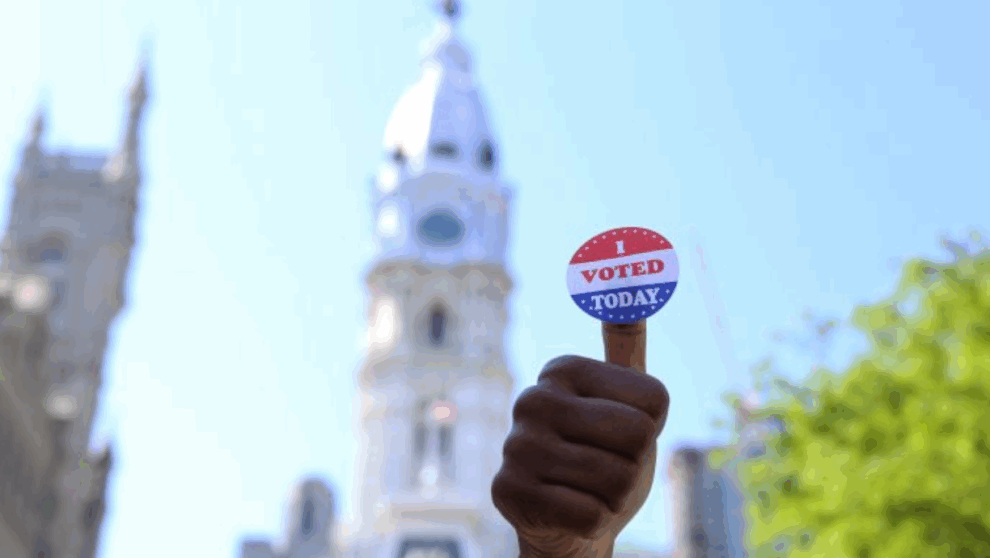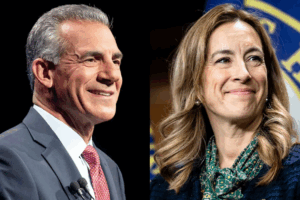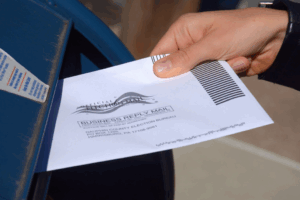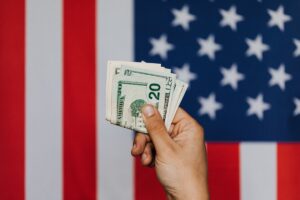Here’s what to know about the questions appearing on the ballot for Philadelphia voters.
On May 20th, voters will flock to the polls for the 2025 primary election.
This year, three questions will be on the ballot for Philadelphia voters. The questions concern Home Rule Charter spending, homeless services, and prison oversight in the city.
If enough voters are in favor, the questions could lead to higher city spending on affordable housing, an independent board to oversee the city’s prison system, and an independent inspector to advocate on behalf of people experiencing homelessness and provide oversight and recommendations to city officials dealing with the issue.
All of these initiatives would require changes to Philadelphia’s Home Rule Charter.
The first question reads, “Should The Philadelphia Home Rule Charter be amended to create the Office of Homeless Services Ombudsperson to assist residents experiencing homelessness, help provide fair access to essential resources, improve quality of life in the shelter system, investigate client complaints, and provide oversight and recommendations to the City’s providers of homeless services?
The city’s Office of Homeless Services currently provides resources aimed at assisting those struggling with homelessness.
Homelessness rose in Philadelphia for the third year in a row in 2024. More than 5,000 people in the city were homeless last year, according to an annual report.
Last year, City Council approved legislation to establish the Office of Homeless Services ombudsperson, an individual who would act as an independent inspector for the Office of Homeless Services. This person would investigate grievances on residents’ behalf and advocate for those overlooked by the system.
If the question on the ballot passes, the city would create the position of an ombudsperson for the Office of Homeless Services. The ombudsperson would be nominated by the mayor and subject to approval by City Council.
The second question reads, “Should the Home Rule Charter be amended to increase the minimum amount that must be appropriated for spending on Housing Trust Fund purposes in the City’s operating budget each year?”
Last year, City Council approved changes to the city’s charter that would require that 100% of payments in lieu of affordable housing be appropriated to the Housing Trust Fund if enacted by ballot measure.
The Housing Trust Fund was created in 2005 to address the housing needs of low-income people living in Philadelphia.
In 2018, the city began allowing building developers to bypass local zoning restrictions to increase the density of their new housing projects if they either construct additional, price-restricted affordable housing units, or make “payments in lieu” of affordable housing to the city.
If passed, any payments in lieu of affordable housing would be appropriated to the Housing Trust Fund.
The third question on the upcoming ballot reads, “Shall The Philadelphia Home Rule Charter be amended to provide for the creation of an independent Philadelphia Prison Community Oversight Board and Office of Prison Oversight and to further authorize City Council to determine the composition, powers and duties of the Board and Office?”
Philadelphia’s prison system has been the subject of many complaints, including poor conditions in jail cells, overcrowding, high-profile escapes, and a shortage of correction officers.
Prison oversight is handled by the Prison Advisory Board. Former members say the group meets infrequently and without full independence from the department it is meant to oversee.
A proposal passed late last year by City Council approves the creation of a Philadelphia Prison Community Oversight Board and an Office of Prison Oversight, putting the initiative on the ballot.
If passed, the Philadelphia Prison Community Oversight Board and an Office of Prison Oversight would be created. The board would likely include four members appointed by the City Council president, four by the mayor’s administration, and one by the county controller. At least one member would be required to have been incarcerated in a Philadelphia prison previously.





